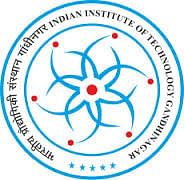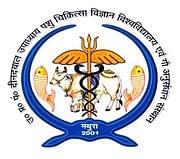Introduction
about Ph. D in sociology
A Doctor of Philosophy (PhD) at the top university in
Sociology is an advanced academic degree that focuses on the systematic study
of society, human behaviour , and social
interactions. As a discipline, sociology explores various aspects of human
society, including social institutions, cultural norms, inequality, social
change, and the dynamics of group behaviour. A PhD in Sociology equips students
with the theoretical frameworks, research methodologies, and analytical tools
necessary to conduct in-depth investigations into complex social phenomena.
During a PhD program in sociology, students typically engage
in rigorous coursework covering topics such as sociological theory, research
methods, statistical analysis, and specialized areas of interest within
sociology. They also have the opportunity to pursue independent research
projects under the guidance of faculty advisors, culminating in a doctoral
dissertation.
One of the defining features of a PhD in Sociology is its
emphasis on original research and scholarship. Doctoral students are encouraged
to contribute new knowledge to the field through their research, often focusing
on pressing social issues, theoretical debates, or empirical inquiries. This
research-intensive approach prepares graduates for careers in academia,
research institutions, government agencies, non-profit organizations, and other
settings where advanced expertise in sociology is valued.
Overall, a PhD in Sociology offers students the opportunity
to delve deeply into the complexities of human society, develop critical
thinking skills, and make meaningful contributions to our understanding of
social phenomena and processes. It's a challenging yet rewarding path for those
passionate about unravelling the intricacies of the social world.
What is
eligibility criteria for PhD in sociology ?
The eligibility criteria for a PhD in Sociology can vary
depending on the specific requirements of each university or institution
offering the program. However, there are some common prerequisites that
applicants typically need to meet. Here's a general overview:
v
Educational Qualifications: Most universities
require applicants to have a master's degree in Sociology or a related field
from a recognized institution. Some programs may accept applicants with a
bachelor's degree, particularly if they have exceptional academic credentials
or relevant professional experience.
v
Academic Performance: Applicants are usually
expected to have a strong academic record, demonstrated through their
undergraduate and/or graduate transcripts. A minimum GPA (Grade Point Average)
may be specified by the institution or department.
v
Standardized Tests: Some universities require
applicants to submit scores from standardized tests such as the GRE (Graduate
Record Examination) or equivalent exams. However, this requirement varies among
institutions, and some may waive it or place less emphasis on test scores.
v
Letters of Recommendation: Applicants typically
need to provide letters of recommendation from academic or professional
references who can attest to their academic abilities, research potential, and
suitability for doctoral study.
v
Statement of Purpose: Most PhD programs require
applicants to submit a statement of purpose outlining their research interests,
academic goals, and reasons for pursuing a PhD in Sociology. This document
allows applicants to articulate their motivations and demonstrate their
alignment with the program's objectives.
v
Research Experience: While not always mandatory,
having prior research experience, such as conducting independent research
projects, presenting at conferences, or publishing academic papers, can
strengthen an applicant's candidacy.
v
English Proficiency: For international
applicants from non-English speaking countries, proof of English language
proficiency is often required. This is typically demonstrated through
standardized tests such as the TOEFL (Test of English as a Foreign Language) or
IELTS (International English Language Testing System).
v
Interview: Some programs may require applicants
to participate in an interview as part of the admissions process. This
interview allows the admissions committee to assess the applicant's fit for the
program and their research interests.
It's important for prospective students to carefully review
the specific requirements and application procedures of each PhD program they
are interested in, as these can vary significantly between institutions.
Additionally, reaching out to program coordinators or faculty members for
clarification on any requirements can be helpful.
What is admission
process for PhD in sociology ?
The admission process for a PhD in Sociology at the best university in India typically involves several steps, and it can vary depending on the
specific requirements and procedures of each university or institution offering
the program. However, here's a general overview of what the process may entail:
§
Researching Programs: Prospective
students should start by researching different PhD programs in Sociology to
identify those that align with their research interests, academic goals, and
career aspirations. Factors to consider include faculty expertise, program
reputation, available resources, and funding opportunities.
§
Meeting Eligibility Requirements:
Applicants must ensure they meet the eligibility criteria set by the program,
which may include holding a master's degree in Sociology or a related field,
maintaining a minimum GPA, submitting standardized test scores (e.g., GRE), and
demonstrating English language proficiency for international applicants.
§
Preparing Application Materials:
Applicants typically need to prepare various application materials, including:
§
Completed application form: Applicants
must fill out the program's application form accurately and completely.
§
Transcripts: Official transcripts from
all previous academic institutions attended must be submitted.
§
Letters of recommendation: Applicants
usually need to provide letters of recommendation from academic or professional
references who can attest to their qualifications and potential for doctoral
study.
§
Statement of purpose: A written statement
outlining the applicant's research interests, academic background, career
goals, and reasons for pursuing a PhD in Sociology.
§
Curriculum vitae (CV) or resume: A
summary of the applicant's academic and professional achievements, including
research experience, publications, presentations, and relevant work experience.
§
Submitting Application Materials: Once
all application materials are prepared, applicants must submit them to the
admissions office of the respective program by the specified deadline. Many
programs have online application portals where applicants can upload their
documents.
§
Application Review: After the application
deadline, the admissions committee reviews each applicant's materials
holistically, considering factors such as academic background, research
experience, letters of recommendation, statement of purpose, and fit with the
program.
§
Interview (if applicable): Some programs
may require selected applicants to participate in an interview as part of the
admissions process. This interview allows the admissions committee to further
assess the applicant's qualifications, research interests, and suitability for
the program.
§
Admission Decision: Following the review
process, the admissions committee notifies applicants of their admission
decision. Accepted applicants receive an offer of admission, while those not
accepted may receive a rejection letter.
§
Enrolment: Accepted applicants must
confirm their intention to enroll in the program by the specified deadline and
complete any additional enrollment-related requirements, such as submitting
financial documentation, securing funding, and registering for courses.
It's important for prospective students to carefully follow
the application instructions provided by each program and to meet all deadlines
to ensure their applications are considered. Additionally, reaching out to
program coordinators or faculty members with any questions or concerns about
the application process can be helpful.
What is
syllabus for PhD in sociology ?
The syllabus for the top best affordable PhD in Sociology college can vary significantly depending on the specific program,
institution, and the research interests of individual students. However, I can
provide a general overview of the types of courses and topics that are commonly
included in PhD programs in Sociology:
v
Sociological Theory: Advanced study of
classical and contemporary sociological theories, including
structural-functionalism, conflict theory, symbolic interactionism, feminist
theory, post-structuralism, and critical theory. Emphasis is placed on
understanding the theoretical foundations of sociology and their applications
to various social phenomena.
v
Research Methods: In-depth exploration of
qualitative and quantitative research methods used in sociological inquiry,
including survey research, ethnography, interviews, content analysis,
statistical analysis, and experimental design. Students learn how to design
research studies, collect data, analyze findings, and interpret results.
v
Specialized Seminars: Courses focused on
specific areas of sociological inquiry, such as sociology of race and
ethnicity, sociology of gender, sociology of globalization, sociology of health
and illness, sociology of education, sociology of religion, environmental
sociology, urban sociology, political sociology, and sociology of culture.
These seminars delve deeply into theoretical debates, empirical research, and
methodological approaches within each subfield.
v
Advanced Topics in Sociology: Courses
that explore cutting-edge topics and emerging trends in sociology, such as
social movements, social networks, digital sociology, environmental justice,
intersectionality, post-colonialism, transnationalism, and globalization. These
courses encourage students to engage with contemporary sociological issues and
debates.
v
Independent Research and Dissertation:
The core of a PhD program in Sociology involves conducting original research
under the supervision of a faculty advisor. Students develop a research
proposal, conduct literature reviews, collect and analyze data, and write a
doctoral dissertation that makes a significant contribution to sociological
knowledge. The dissertation typically demonstrates mastery of research methods,
critical thinking skills, and the ability to engage with theoretical debates.
v
Teaching and Professional Development:
Some programs include courses or workshops on teaching sociology, pedagogical
strategies, academic writing, grant writing, conference presentations, and
professional ethics. These courses prepare students for careers in academia and
provide valuable skills for communicating research findings to diverse
audiences.
As such, the actual syllabus may vary from one program to
another and may be influenced by faculty expertise, departmental priorities,
and emerging trends in the discipline. Prospective students should review the
course offerings and research opportunities available in each program to ensure
they align with their academic and professional objectives.
What are
scope after PhD in sociology?
The scope after completing a PhD in Sociology is broad and
varied, offering graduates opportunities in academia, research, policy
analysis, advocacy, and various other sectors. Here are some potential career
paths and opportunities:
![]() Academic
Careers: Many PhD graduates in Sociology pursue careers in academia as
professors, researchers, and scholars. They may secure tenure-track or tenured
faculty positions at colleges and universities, where they teach undergraduate
and graduate courses, conduct research, publish scholarly articles and books,
and mentor students.
Academic
Careers: Many PhD graduates in Sociology pursue careers in academia as
professors, researchers, and scholars. They may secure tenure-track or tenured
faculty positions at colleges and universities, where they teach undergraduate
and graduate courses, conduct research, publish scholarly articles and books,
and mentor students.
![]() Research
Positions: PhD holders in Sociology can work as researchers in academic
institutions, think tanks, research organizations, government agencies, and
non-profit organizations. They may conduct empirical research, analyze social
trends and phenomena, evaluate programs and policies, and contribute to the
development of social science knowledge.
Research
Positions: PhD holders in Sociology can work as researchers in academic
institutions, think tanks, research organizations, government agencies, and
non-profit organizations. They may conduct empirical research, analyze social
trends and phenomena, evaluate programs and policies, and contribute to the
development of social science knowledge.
![]() Policy
Analysis and Advocacy: Sociologists play a crucial role in informing public
policy and advocating for social change. PhD graduates can work as policy
analysts, consultants, or advisors for government agencies, non-governmental
organizations (NGOs), advocacy groups, and international organizations. They
may conduct research on social issues, evaluate policy interventions, and
provide recommendations to policymakers.
Policy
Analysis and Advocacy: Sociologists play a crucial role in informing public
policy and advocating for social change. PhD graduates can work as policy
analysts, consultants, or advisors for government agencies, non-governmental
organizations (NGOs), advocacy groups, and international organizations. They
may conduct research on social issues, evaluate policy interventions, and
provide recommendations to policymakers.
![]() Social
Services and Non-profit Organizations: Sociologists contribute to the design,
implementation, and evaluation of social services and programs aimed at
addressing various social problems and improving community well-being. PhD
graduates may work in non-profit organizations, community-based organizations,
social service agencies, and philanthropic foundations, where they develop and
manage programs, conduct needs assessments, and advocate for marginalized
populations.
Social
Services and Non-profit Organizations: Sociologists contribute to the design,
implementation, and evaluation of social services and programs aimed at
addressing various social problems and improving community well-being. PhD
graduates may work in non-profit organizations, community-based organizations,
social service agencies, and philanthropic foundations, where they develop and
manage programs, conduct needs assessments, and advocate for marginalized
populations.
![]() Consulting
and Applied Research: Sociologists with PhDs may work as consultants or
researchers for private-sector firms, market research companies, and consulting
firms. They may conduct applied research, data analysis, and program evaluation
for clients in industries such as healthcare, education, market research, human
resources, and public relations.
Consulting
and Applied Research: Sociologists with PhDs may work as consultants or
researchers for private-sector firms, market research companies, and consulting
firms. They may conduct applied research, data analysis, and program evaluation
for clients in industries such as healthcare, education, market research, human
resources, and public relations.
![]() International
Development and Global Affairs: Sociologists with expertise in globalization,
development studies, and international relations can pursue careers in
international development agencies, humanitarian organizations, and
multilateral institutions. They may work on projects related to poverty
alleviation, economic development, human rights, conflict resolution, and
sustainable development in various regions of the world.
International
Development and Global Affairs: Sociologists with expertise in globalization,
development studies, and international relations can pursue careers in
international development agencies, humanitarian organizations, and
multilateral institutions. They may work on projects related to poverty
alleviation, economic development, human rights, conflict resolution, and
sustainable development in various regions of the world.
![]() Media
and Communications: Sociologists can contribute to public discourse and media
discussions on social issues by providing expert analysis and commentary. PhD
graduates may work as journalists, media commentators, or contributors to
newspapers, magazines, websites, and television programs.
Media
and Communications: Sociologists can contribute to public discourse and media
discussions on social issues by providing expert analysis and commentary. PhD
graduates may work as journalists, media commentators, or contributors to
newspapers, magazines, websites, and television programs.
![]() Entrepreneurship
and Social Innovation: Some PhD graduates in Sociology choose to pursue
entrepreneurial ventures or start their own social enterprises aimed at
addressing societal challenges, promoting social justice, or advancing
community development initiatives.
Entrepreneurship
and Social Innovation: Some PhD graduates in Sociology choose to pursue
entrepreneurial ventures or start their own social enterprises aimed at
addressing societal challenges, promoting social justice, or advancing
community development initiatives.
Overall, the scope after completing a PhD in Sociology is diverse and multifaceted, offering opportunities for graduates to make meaningful contributions to academia, research, policy, advocacy, and social change in a wide range of settings and sectors.
About us :
Universityfindo provides you a platform where you fulfill your dreams and takes a step forward towards in your life . We provide you all courses with affordable fees and safe environment . For more information contact us on our website : universityfindo.com .












